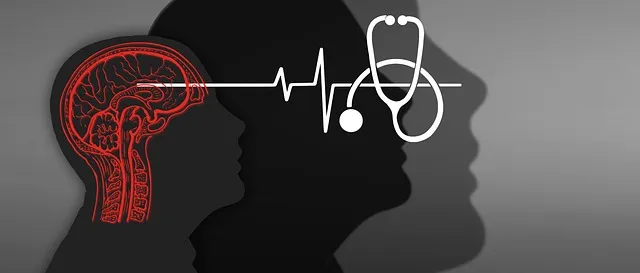Kaiser Permanente offers holistic mental health coverage in Wheat Ridge, CO, integrating crisis intervention strategies that empower individuals to cope with acute distress and build resilience. Their evidence-based approach combines therapy, counseling, and self-care practices to address immediate needs while fostering long-term emotional well-being. Wheat Ridge's commitment to mental health is reflected in its supportive community initiatives, ensuring residents access timely interventions and resources for enhanced overall well-being.
In times of crisis, effective intervention can make a profound difference. This article guides you through essential strategies and resources for managing mental health crises, focusing on the comprehensive Kaiser Permanente mental health coverage and the dedicated support services available in Wheat Ridge. We explore a brief overview of crisis intervention, highlight key practices from leading organizations, and offer practical steps to implement successful programs. By understanding these tools, we can better navigate and support individuals during challenging moments.
- Understanding Crisis Intervention: A Brief Overview
- Kaiser Permanente Mental Health Coverage: What You Need to Know
- Wheat Ridge: A Hub for Effective Crisis Support Services
- Practical Strategies for Implementing Crisis Intervention Programs
Understanding Crisis Intervention: A Brief Overview

Crisis intervention strategies are essential components of mental health care, designed to provide immediate support and guidance during times of acute distress. Understanding crisis intervention involves recognizing its role in mitigating the impact of traumatic or highly stressful events on an individual’s well-being. This approach focuses on empowering individuals to cope with their current situation and fostering resilience for future challenges.
In the context of Kaiser Permanente mental health coverage in Wheat Ridge, crisis intervention services play a vital role in ensuring accessible and effective care. By integrating evidence-based practices, mental health professionals can offer tailored interventions that address not only the immediate crisis but also underlying factors contributing to mental illness. Moreover, these strategies complement broader initiatives like Mental Health Policy Analysis and Advocacy, Mental Illness Stigma Reduction Efforts, and Self-Care Routine Development for Better Mental Health, ultimately aiming to create a comprehensive support system that enhances overall community well-being.
Kaiser Permanente Mental Health Coverage: What You Need to Know

Kaiser Permanente offers comprehensive mental health coverage in Wheat Ridge, CO, recognizing the importance of emotional well-being alongside physical health. Their plans are designed to support individuals and families facing various mental health challenges, ensuring access to a wide range of services. This includes therapy sessions, counseling, medication management, and crisis intervention programs tailored to meet unique needs. With a focus on holistic care, Kaiser Permanente integrates emotional intelligence and resilience building techniques into their treatment approaches, empowering members to manage stress and overcome adversity effectively.
For mental health professionals within the Kaiser Permanente network, robust risk management planning is paramount. The organization provides resources and guidelines to help practitioners navigate complex ethical dilemmas, ensure patient safety, and maintain professional boundaries. By prioritizing these aspects, Kaiser Permanente aims to foster a supportive environment that enhances clinical decision-making and ultimately improves patient outcomes in Wheat Ridge and beyond.
Wheat Ridge: A Hub for Effective Crisis Support Services

Wheat Ridge, a vibrant community within the broader metropolis, has emerged as a hub for exceptional crisis intervention services. Organizations like Kaiser Permanente, known for its comprehensive mental health coverage, have established strong roots here. These institutions offer a range of support tailored to individuals facing various crises, from emotional turmoil to acute situations.
The region’s focus on mental well-being is evident through initiatives promoting self-awareness exercises and stress reduction methods. By fostering self-care routine development for better mental health, Wheat Ridge ensures that its residents have access to proactive and supportive services. This holistic approach not only addresses immediate crisis needs but also empowers individuals with long-term strategies for maintaining resilience and overall well-being.
Practical Strategies for Implementing Crisis Intervention Programs

Implementing crisis intervention programs requires a structured approach that addresses the immediate needs of individuals while also fostering long-term resilience. One effective strategy is integrating Kaiser Permanente mental health coverage and similar comprehensive healthcare solutions in Wheat Ridge or any urban setting. Such integration ensures easy access to mental health services, promoting timely interventions for crisis situations. By leveraging evidence-based practices, programs can offer tailored support that includes Stress Management, Resilience Building, and Self-Care Practices.
For instance, crisis intervention teams can employ cognitive-behavioral techniques to help individuals identify and change distressing thought patterns. Additionally, mindfulness training and relaxation exercises can be incorporated into the program to enhance emotional regulation and coping mechanisms. Encouraging participants to adopt self-care routines, such as regular exercise, adequate sleep, and healthy eating habits, further reinforces their ability to navigate future challenges.
Crisis intervention is a vital component of mental healthcare, and as demonstrated by Kaiser Permanente’s comprehensive mental health coverage and Wheat Ridge’s dedicated support services, accessible and effective strategies can make a significant difference. By implementing practical approaches outlined in this article, communities can enhance their crisis response capabilities, ensuring better outcomes for individuals facing emotional or psychological crises. Remember that early intervention and access to resources are key to fostering resilience and supporting those in need.






